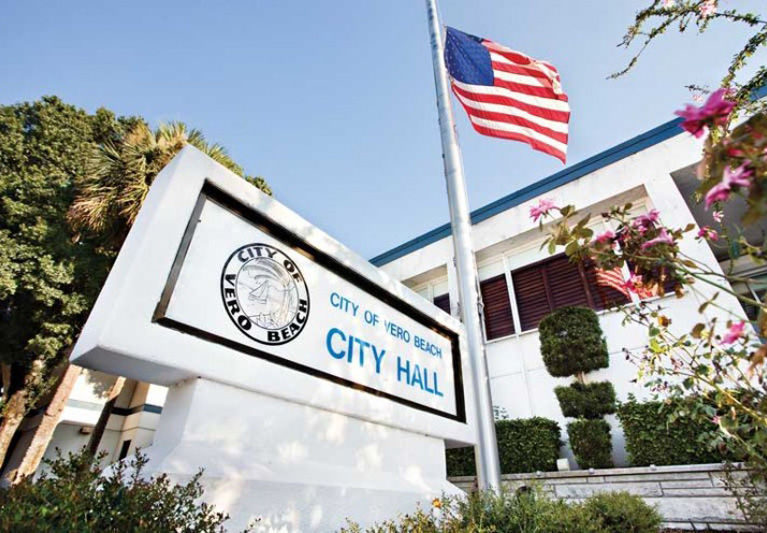
VERO BEACH — Rarely do people take to the public arena and encourage elected officials to think twice before they agree to lower the tax bills, but that is exactly what happened Tuesday evening during the Vero Beach City Council budget hearing.
In the end, the council unanimously voted to maintain the current tax rate of $2.03 per $1,000 taxable value of homes. That figure which along with the budget is awaiting the final nod of the city council members Sept. 18.
A rate of 2.03 mils is 3.2 percent less that the roll back rate — a rate that many officials tend to gladly latch onto with assurance that taxes aren’t going up, but maintain the status quo.
In July, the city council leaned toward that roll back rate, but opted to go leaner.
Because of an overall decline in property values across the city, the average homeowner should see a decrease in his or her tax bill for the city.
At the 2.03 rate, a resident with a $400,000 home minus the homestead exemption would pay $610 to the city.
“It’s time to raise our taxes,” said Joseph Guffanti.
Guffanti admitted that just uttering the words doesn’t sound right especially since three seats are up to grabs in the November General Election and two council members so far, Mayor Pilar Turner and Vice Mayor Craig Fletcher have since expressed interest in returning.
Guffanti said to act as if all was well with the city’s staggering debt problems, the pensions in particular, is wrong. “It’s time to pay the piper,” he said. “And I know some of you may want to get re-elected.”
Brian Heady, who is seeing to return to the council in the November election, said that being able to say that taxes are being lowered does make good talking point, but the city was heading down the same road as the nation with excessive debt and few willing to address the need to get out of it.
City Manager Jim O’Connor said that the city should come away with $56,000 that it can put into reserves even with a lower tax rate.
How that can be done, Finance Director Cindy Lawson said was by reducing $1.4 million from salaries in the operating budget by losing 26 positions, most of which are through attrition. The city also found another $200,000 in savings by refinancing a loan and changing its health-care plan.



